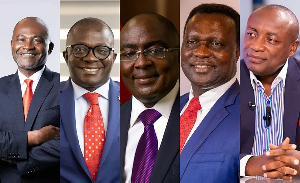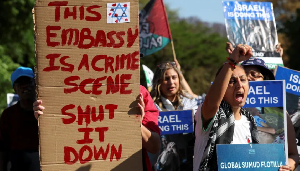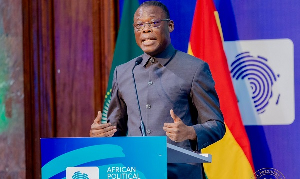COVID-19, a pneumonia of unknown cause was first detected in Wuhan, China and reported to the WHO Country Office in China on 31 December 2019. It was subsequently declared a Public Health Emergency of International Concern on 30 January 2020.
As a matter of fact, what this stand to mean was, a consented effort by all nations was required to limit or eradicate the spread and its effect on human lives, social systems and the economy of countries at large. The announcement by the WHO indicated how rapidly the virus is spreading and how misinformation has surpassed spread of the virus. The WHO Director stated; ‘’we’re not just fighting an epidemic, we’re also fighting an ‘infodemic’’ (WHO, February 2020).
While almost all countries across the globe are working tirelessly to provide to its people valid information about the spread and strategies of dealing with Corona-virus (COVID-19), there are other forms of information going round with no facts. In the age of smart devices, internet and the flexibility in the channels of communication, many have argued on the appropriateness to ‘lock-down’ some aspects of social media usage or to maintain the status-quo. Though lock-downs are intended to restrict social and other gatherings, to ensure the virus is contained and further prevent the spread to other areas, misinformation has taken the same speed of spread just as the virus.
It can be argued that, the number of people infected with misinformation has become greater than the number of people infected by COVID-19. For example, while the ‘frontline’ officials are providing up to speed information to the media on the spread of the virus; in the same manner, lies and untruths are being peddled about other forms of treating the illness (the extent of proposing herbal concoctions with no scientific certification); the conspiracy about the virus origin, the 5G myth, the alcohol healing ‘theory’;, the black race are immune; and then finally the scientifically unproven warm weather ‘theory’.
The many people who are quick to share these fake information are usually ignorant of the consequences. They do this with the idea of being the first hand informer even though they have not confirmed the authenticity of the information.
According to Fallis (2015), misinformation means false or inaccurate information circulating as a result of honest mistakes, negligence or unconscious biases. Misinformation is a key factor in making such a pandemic so difficult to control in some countries. During the outbreak of Ebola in the Democratic Republic of Congo, lots of misinformation was shared such as; it doesn't exist; that it has been framed so as to get financial assistance; that it is being used to kill people as a form of organ theft transplant and many others.
Knowing that misinformation will occur because the human mind act rationally and having experienced such fake news in the Spanish flu days of 1918, it was important for countries to have warned its people about this as it was bound to happen. Researchers in the past noted that, when people were warned and educated that they might be exposed to bad information in the future, it increases peoples resistance to misinformation. Further, when misinformation was already processed in the human mind, changing through warning had little or no improvement in the damaging effects (Greene et’al. 1982).
Arguably, people buy into fake information because of panic, anxiety, fear and anger. This basically plays on people’s instinct, thereby making them forward these fake news just as they received without crosschecking for its authenticity. It is very strange to note that even at the peak of a lock down, in Ghana many troop to the sea side to have a party, others are crossing borders illegally, many others disregarding the social distancing rules by engaging in church activities, marriage ceremonies among countless examples all over the world.
An interesting and worrying incident was when patients tested COVID-19 positive escaped from designated isolation centers in Ghana. One would ask, what triggered these patients to have this escape mentality? Increasingly, some residents in some communities are also against the siting of isolation centers in their communities for fear of the unknown.
These practices alone should tell us how badly many have been ‘infected’ with unverified news about the pandemic and the lack of effectively communicating to all, the risk and effect of COVID-19 on the larger society and the penalties that one is likely to face for going against the regulations. As far as these unverified news or misinformation trend, it will have a rippling cost to lives and countries.The aspect where people’s behaviour impose negative externalities on the rest of society requires stricter regulations.
Classically, epidemics or pandemics just as the COVID-19 have always come with their own accompanying misinformation. Good intentions by authorities in disseminating well thought out plan on COVID-19 may fail because of poorly communicating to all through all available structures. In a digital age, with increase in accessibility to information, it is easy to deplore such misinformation by people, and the damaging consequence would be difficult to repair. Certainly, pandemics like what we are faced with now will remain a part of human life.
While it is complicated in this digital age to deal with the spread of misinformation, it is however important for authorities to radically be informed and be aware of the likely reasons people consume and share unverified information, learn from the lessons and offer solutions ahead of time to curtail such incidents now and in the future..
For Further Reading:
Claude, K. M., Underschultz, J., & Hawkes, M. T. (2019). Social resistance drives persistent transmission of Ebola virus disease in Eastern Democratic Republic of Congo: A mixed-methods study. PLoS ONE, 14(9), 1–18. https://doi.org/10.1371/journal.pone.0223104
Fallis, D. (2015). What Is Disinformation? Library Trends. 63. 401-426. 10.1353/lib.2015.0014.
Greene, E., Flynn, M.S., and Loftus, E.F. 1982. Inducing resistance to misleading information. J. Verbal Learn. Verbal Behav. 21: 207–219.
Sims, D. (1993). Coping with Misinformation. Management Decision, 31(5), 18–21. https://doi.org/10.1108/00251749310041779
Sunstein, C. R., & Vermeule, A. (2008, August 18). Conspiracy Theories: Causes and Cures*. Retrieved April 16, 2020, from https://onlinelibrary.wiley.com/doi/epdf/10.1111/j.1467-9760.2008. 00325.x
Tomes, J. L., & Katz, A. N. (1999, January 6). Habitual Susceptibility to Misinformation and Individual Differences in Eyewitness Memory. Retrieved April 16, 2020, from https://onlinelibrary.wiley.com/doi/epdf/10.1002/(SICI)1099-0720(199706)11:3< 233::AID-ACP447>3.0.CO;2-V
Turse, N. (2019). How This Pastor of a Megachurch Is Fueling Ebola Conspiracy Theories. Time. Retrieved 16 April 2020, from https://time.com/5703662/ebola-conspiracy-theories-congo/.
Whitehead, K. (2017). Witnesses to anarchy: the 1967 riots in Hong Kong, by some of those caught up in the violence. Post Magazine, 361–366. https://doi.org/10.1101/lm.94705.recalled
Weeks, B. E. (2015). Emotions, Partisanship, and Misperceptions: How Anger and Anxiety Moderate the Effect of Partisan Bias on Susceptibility to Political Misinformation. Journal of Communication, 65(4), 699–719. https://doi.org/10.1111/jcom.12164
Munich Security Conference. Who.int. (2020). Retrieved 16 April 2020, from https://www.who.int/dg/speeches/detail/munich-security-conference.
Author: Stephen Tete Mantey
Stephen is a Public Policy student at the University of Erfurt, Germany. He holds a Master's degree in Logistics&Supply Chain Management from the Kwame Nkrumah University of Science & Technology, Kumasi- Ghana. He has 10 years experience in operations and general administrative duties in the health and medical sector and was instrumental in the establishment of Legacy Hospital, Kumasi, Ghana. He is an Entrepreneur, Skills & Business Development Enthusiast.
Opinions of Sunday, 26 April 2020
Columnist: Stephen Tete Mantey, Contributor















